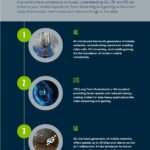Linear algebra and calculus are foundational mathematics courses with distinct challenges. While many students find calculus initially easier due to its familiar structure and readily available learning resources, linear algebra often presents a different learning curve. This article explores the perceived difficulty of linear algebra compared to calculus and delves into the reasons behind these perceptions.
The Different Challenges of Linear Algebra and Calculus
The perceived difficulty of linear algebra often stems not from its inherent complexity but from pedagogical approaches and available resources. Unlike calculus, where numerous online tutorials and comprehensive solution manuals provide step-by-step guidance, linear algebra resources can be less abundant and less intuitive.
Calculus often focuses on applying formulas and procedures to solve problems, making it easier for students who prefer a concrete, step-by-step approach. Linear algebra, however, introduces abstract concepts like vector spaces, matrices, and linear transformations, requiring a shift towards conceptual understanding. This shift in learning style can be challenging for students accustomed to the procedural nature of calculus.
Furthermore, linear algebra courses vary significantly in difficulty depending on the level of abstraction and emphasis on proofs. Some courses delve into abstract algebra, utilizing vector spaces over arbitrary fields and rigorous proofs. Others concentrate on matrix calculations and applications. This variability can lead to discrepancies in perceived difficulty.
Calculus, often a prerequisite for many fields, caters to a broader audience, including students with less mathematical inclination. Linear algebra, however, frequently attracts students with a stronger mathematical foundation, potentially creating a perception of increased difficulty.
Pedagogical Approaches and Resource Availability
One contributing factor to the perceived difficulty of linear algebra is the availability and quality of learning resources. While calculus boasts a wealth of online tutorials and detailed solution manuals, resources for linear algebra can be less comprehensive and less readily accessible. This disparity in resources can impact students’ ability to grasp the material and overcome challenges.
The pedagogical approach in linear algebra instruction can also influence perceived difficulty. Some textbooks and courses assume a level of mathematical maturity that may not align with the background of all students. A sudden jump into abstract concepts without sufficient foundational groundwork can leave students feeling lost and overwhelmed.
Bridging the Gap: Strategies for Success in Linear Algebra
While linear algebra may present unique challenges, understanding the nature of these challenges can empower students to develop effective learning strategies. Focusing on conceptual understanding, seeking out supplementary resources, and actively engaging with the material are crucial for success.
Understanding the underlying concepts, rather than memorizing procedures, is paramount in linear algebra. Visualizing abstract concepts and connecting them to concrete examples can enhance comprehension. Seeking out supplementary resources, such as online tutorials, alternative textbooks, and study groups, can provide additional support and clarification. Active learning techniques, including working through practice problems and engaging in discussions, are essential for solidifying understanding and developing problem-solving skills.
Conclusion
The difficulty of linear algebra compared to calculus is subjective and depends on individual learning styles, prior mathematical experience, and the specific course content. While the abstract nature of linear algebra and the relative scarcity of readily available learning resources may pose challenges, focused learning strategies and a strong emphasis on conceptual understanding can pave the way for success. Both linear algebra and calculus are valuable tools in various fields, and mastering these subjects opens doors to a wide range of academic and professional opportunities.
